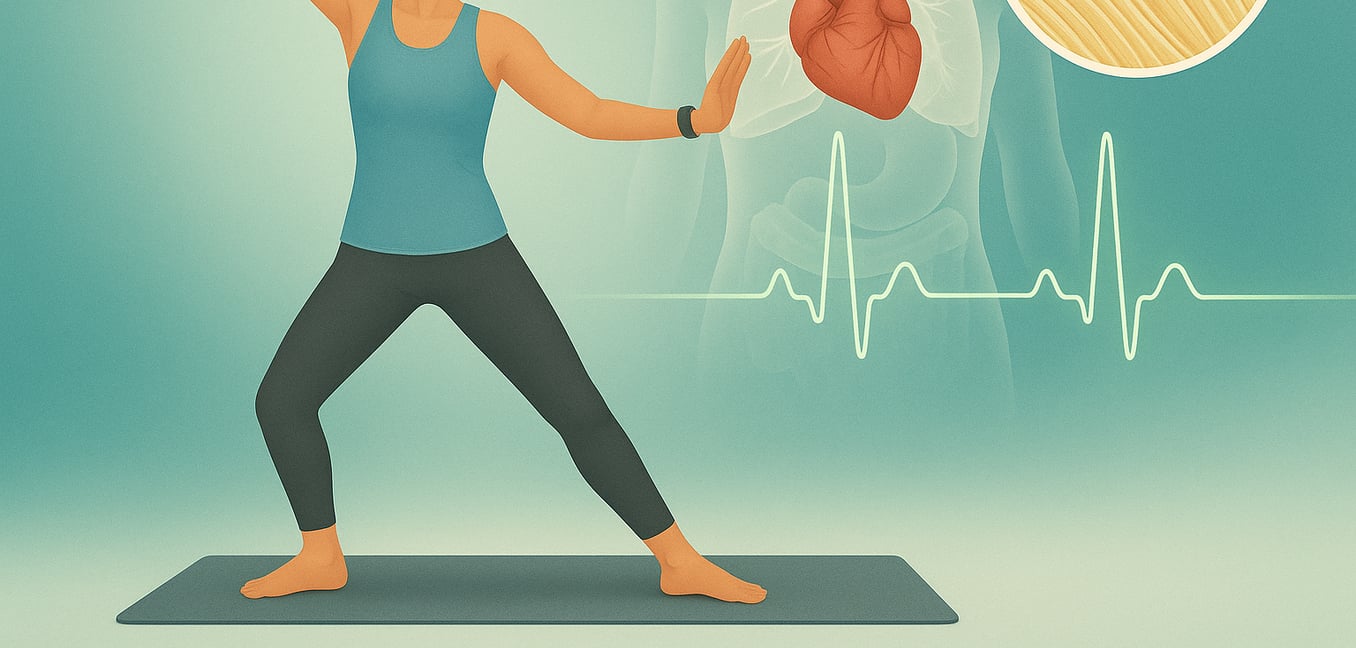A Lifestyle Guide for Managing Marfan Syndrome
Marfan syndrome is a genetic disorder that affects the body's connective tissue, which provides strength and flexibility to structures like the heart, blood vessels, bones, and eyes. While there is no cure, proactive management is essential for a high quality of life. The cornerstone of care is medical supervision, which often includes regular imaging to monitor the aorta and medications like beta-blockers to reduce stress on the heart. The following lifestyle modifications are designed to work in concert with your medical treatment, empowering you to protect your body and support your overall well-being.
Physical Activity: Finding the Right Balance
For individuals with Marfan syndrome, the goal of physical activity is to maintain cardiovascular fitness and muscle strength without placing undue stress on vulnerable tissues. A carefully considered approach allows you to enjoy the benefits of exercise while minimizing risks to your heart, aorta, and joints. Always consult your cardiologist to design an exercise plan that is safe for your specific condition.
Recommended Activities
- Choose low-impact exercises. Opt for activities like brisk walking, recreational swimming, or cycling on level ground. These strengthen your heart and improve circulation without jarring your joints or causing sudden spikes in blood pressure.
- Incorporate gentle flexibility work. Try controlled stretching, yoga, or tai chi to improve muscle tone and support joint stability. Focus on enhancing your range of motion without overstretching, which can help reduce skeletal discomfort.
Activities and Movements to Avoid
- Steer clear of contact sports. Avoid sports like football, basketball, hockey, and soccer, where collisions and blows to the chest pose a significant risk to a fragile aorta.
- Avoid high-intensity exertion. Heavy weightlifting, competitive sprinting, and other activities that cause intense strain create extreme pressure within the chest and must be avoided.
- Say no to pressure-change activities. Scuba diving and skydiving subject the body to rapid and significant shifts in atmospheric pressure, which can put dangerous stress on blood vessel walls.
- Avoid sudden temperature extremes. Moving quickly from a hot sauna or hot tub into a cold pool can cause blood vessels to rapidly constrict, creating a shock to the cardiovascular system.
Heart-Healthy Nutrition to Support Your Body
While diet cannot alter the genetics of Marfan syndrome, a heart-healthy eating plan is a powerful tool for managing blood pressure and reducing inflammation. Making thoughtful food choices helps protect your cardiovascular system and supports the goals of your medical treatment.
Key Dietary Principles
- Eat a variety of whole foods. Fill your plate with colorful fruits, vegetables, lean proteins like fish and poultry, and whole grains like oats and quinoa. These foods provide essential vitamins, minerals, and antioxidants that combat inflammation.
- Incorporate beneficial fats. Focus on omega-3 fatty acids found in fatty fish like salmon, as well as in walnuts, flaxseeds, and chia seeds. These fats are known to support blood vessel health and help lower blood pressure.
- Minimize processed items. Limit packaged snacks, sugary drinks, and fast food that are high in sodium, added sugar, and unhealthy fats. These can contribute to high blood pressure and put unnecessary stress on your heart.
- Stay consistently hydrated with water. Proper hydration is essential for healthy blood flow and helps your heart pump more efficiently. Choose water over sugary beverages to support your cardiovascular system throughout the day.
Daily Habits for Aortic Protection and Well-Being
Beyond diet and exercise, certain daily habits can play a crucial role in protecting your aorta and promoting overall health. These practices help manage blood pressure, reduce stress, and make you an active partner in your own care.
Actionable Strategies
- Monitor your blood pressure at home. Regularly checking your blood pressure provides you and your doctor with valuable data. This helps track your body’s response to medication, diet, and stress, allowing for more informed treatment decisions.
- Find healthy ways to manage stress. Chronic stress can raise blood pressure. Incorporate calming practices into your routine, such as deep breathing, mindfulness meditation, or spending time on a relaxing hobby to reduce strain on your heart.
- Avoid straining during daily tasks. Be mindful of actions that involve bearing down, like lifting heavy furniture or boxes. This action, known as the Valsalva maneuver, dramatically spikes internal pressure and should be avoided. Ask for help with heavy lifting.
- Take medications as prescribed. Adhering to your medication schedule is non-negotiable. These drugs are a primary shield for the aorta, working 24/7 to reduce the force of blood flow and prevent long-term damage.










